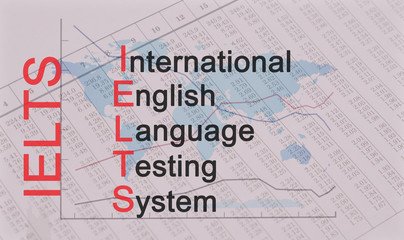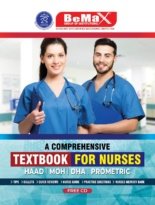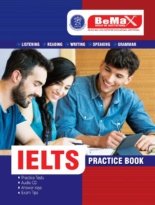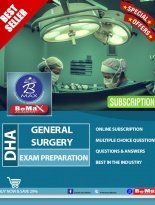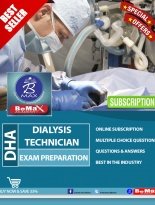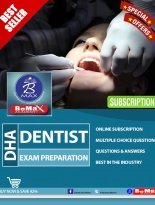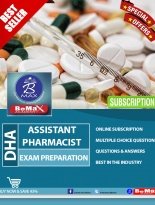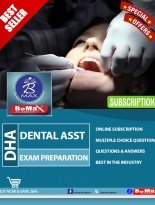IELTS stands for International English Language Testing System which is basically a standardized
test aimed to assess the language proficiency of individuals who do not speak English as their first
language. The test measures the ability to communicate in English across all four language skills,
namely listening, reading, writing, and speaking. It is recognized and accepted by universities,
immigration authorities, and employers in many countries across the world, including Australia,
Canada, New Zealand, the UK, and the USA. The test is available in two formats: Academic and
General Training. The Academic version is intended for those who wish further their studies at an
institution abroad, while the General Training version is for those who want to work, migrate, or
undertake non-academic training. IELTS scores are reported on a 9-band scale, with each band
corresponding to a level of English proficiency. The higher the score, the better the candidate’s
English proficiency.
Recently, there have been a few noticeable changes to the different modules in IELTS and practicing
these modules with up-to-date materials, the right information, and with proper guidance are what BeMax
focuses on its students. Some key updates are shared below: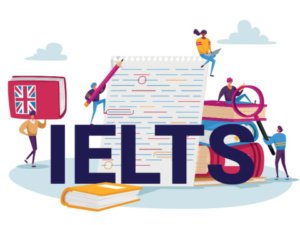
Writing
Task 1
The IELTS Writing module is an essential part of IELTS which assesses an individual’s writing
skills in English. In India, the IELTS Writing module has undergone some changes in recent years,
particularly in Task 1.
The format of the IELTS Task 1 Writing in India remains the same. Test takers are required to write
a report with a minimum of 150 words in 20 minutes, describing a graph, chart, or diagram.
However, the types of graphs, charts, and diagrams have become more diverse, covering a wide
range of topics like social trends, economic statistics as well as scientific data. The test takers are
now required to analyze and interpret data in a more detailed and critical manner. There has also
been an increase in the number of maps, tables, and process diagrams in the test. For General
candidates though, no considerable changes in the types of questions have been noticed.
Task 2
The format of Task 2 has not seen any changes yet. Test takers are required to write an essay with a
minimum of 250 words in 40 minutes, expressing their thoughts on a given topic. The topics that
test takers get nowadays cover manifold areas including social, economic, and environmental
problems; the test takers are now expected to demonstrate a higher level of critical thinking and
analysis in their writing. For instance, they may be asked to analyze and evaluate several arguments,
propose varied solutions to problems, or provide proper recommendations based on their own
experiences.
It is crucial for test takers to be aware of these changes and to practice their writing skills
accordingly in order to succeed. The students at BeMax are updated regularly of the same and are
also made to practice the new set of questions asked in the recent tests. This surely helps them to
work better for attaining their desired score.
Speaking
The IELTS Speaking module is another crucial component of IELTS, designed to evaluate an
individual’s oral English proficiency. This module has come across some changes too in recent
years.
The format of the IELTS Speaking test has remained largely the same across the nation. However,
there have been some minor changes in the duration of each section. Previously, the speaking test
used to take 11-14 minutes in total but these days students sometimes experience longer sessions.
The test takers are now asked to provide more specific examples in their responses. This change has
made the test more challenging as the candidates have to think on their feet and provide detailed
answers that are relevant and logically developed. The students can expect more questions in Part 1
or Part 3 as compared to the past. Also, online (video call) Speaking test has become more common
these days after the Covid outbreak in India.
BeMax understands the requirement of students and tailors the materials accordingly. Our
experienced trainers share the recently asked questions in countries like Nepal, Indonesia,
Afghanistan, to name a few, with the students and help them prepare well. Students usually get the
same questions that they prepare with us for their test which helps them stay relaxed throughout the
session and attain a good score. We also have cue cards prepared for the students at every branch to
practice daily.
Reading
Reading is also an essential module in IELTS designed to evaluate an individual’s reading ability in
English. This module has seen several amendments in the last few years. The format of the IELTS
The reading module has not changed significantly in India; the test takers still have to answer 40
questions in 60 minutes, based on three passages (Academic) and five (GT). However, the types of
passages included in the test for Academic candidates have become more diverse, covering a wide
range of topics, such as science, history, and culture. The test takers are now required to answer
more complex questions which require a higher level of comprehension and analytical skills,
making the test more challenging. The passages for General candidates have also turned out to be
more complex than before. For instance, it is trickier to find answers to the ‘List of Headings’ type
question currently as the information normally cannot be found in the first or last sentences as it
usually did.
We make sure to collect all the recent passages that have been asked for the main test and provide
students with the same so that they don’t lag behind and understand what to expect on the day of the
test. Special practice sessions at every branch of BeMax is also provided to students in order to
share tips on understanding keywords and finding the answers without wasting time.
Listening
The listening module is one that evaluates candidates’ ability to comprehend spoken English in
various contexts. In recent times, there have been some minor changes in the IELTS listening
module in India, which have affected how candidates prepare for the test.
From January 4th, 2020 onwards, no page numbers have been provided in the tape scripts; the word
“sections” have been altered to “parts”; and no example is played currently at the start of Part One
as earlier.
Another prominent change in the IELTS listening module in India is the inclusion of newer and
more diverse content. The recordings now cover numerous topics that include social issues,
technology, science, and the environment, to reflect the changing demands of the modern world.
The test-takers have to be prepared to comprehend the recordings in different contexts and
understand the native speakers’ accents and intonations. They can practice by listening to various
English language podcasts, news broadcasts, interviews, and talks on different acclaimed websites.
Also, it is advised not to expect the order of different question types in different parts of the IELTS
tests as earlier because students nowadays find random question types in each section.
In order to cope with the same, several listening materials are provided to students at BeMax and
trainers guide them at every stage where they feel difficulty comprehending. Listening to native
speakers regularly is vital to cracking the Listening test with a good score and materials for the
same are provided at the institute.
Apart from all this, one major change that got introduced recently is the order of the modules given
on the main test day. Earlier the order followed was LRW (L- Listening, R- Reading and writing);
however, the order that is being followed presently at test centers in India is WLR. Some
students find it difficult to manage to do the Reading module at the end. With the right amount of
practice, one can easily tackle this situation. So, at BeMax, we try following the same format for
weekly mock tests and monthly centralized mock tests so that students get the hang of it.
BeMax works on catering to the needs of its students so that they scale greater heights in life.
IELTS preparation at BeMax is undoubtedly the finest across the country; we work on bringing the
best trainers, materials, and services to the table so that you have a great experience with us. So, if
you are an IELTS aspirant, BeMax is definitely what you need.
-

IELTS speaking | Tips and tricks | Tutorials | Bemax Academy
-

IELTS tips| Vocabulary for IELTS writing | Tutorials | Vocabulary in easy way| Bemax Academy
-

ആത്മവിശ്വാസത്തോടെ IELTS എഴുതാം| IELTS ACADEMIC WRITING TIPS | TRICKS | TASK 1|BEMAX ACADEMY
-

How to manage time effectively in IELTS | Tips & Tricks | Bemax Academy

